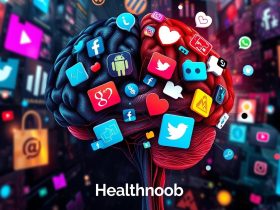Vaccines are key to keeping us all healthy. They work by teaching our bodies to fight off diseases. This helps keep everyone safe, especially those who can’t fight off diseases on their own.
Let’s look into how vaccines work and why they’re so important. We’ll see how they help protect our communities from harmful diseases.
Key Takeaways
- Vaccines train the immune system to recognize and combat pathogens, reducing the incidence of preventable diseases.
- Herd immunity, achieved through widespread vaccination, protects vulnerable populations from infectious diseases.
- Vaccines have been instrumental in controlling epidemics and eradicating deadly diseases like smallpox.
- Understanding the science behind vaccines and herd immunity is crucial for informed decision-making and public health policies.
- Vaccination programs and immunization schedules play a vital role in safeguarding global public health initiatives.
The Science Behind Vaccines and Herd Immunity
Vaccines work by using a weakened form of a pathogen. This triggers our immune system to make antibodies. These antibodies then fight off the real virus or bacteria, stopping infection.
Vaccine Efficacy and Mechanism of Action
Vaccines mimic infection but don’t cause the disease. When we get a vaccine, our body fights it off. This makes antibodies ready to fight real viruses or bacteria.
This is why vaccines are great at stopping many preventable diseases.
Herd Immunity: Protecting the Vulnerable
Herd immunity is key to understanding vaccines. When many people are vaccinated, diseases find it hard to spread. This is especially true for those who can’t get vaccinated, like young kids or people with weak immune systems.
Vaccines create a shield of immunity. They protect not just the vaccinated but also those who can’t get shots. This lowers the risk of preventable diseases and helps everyone’s health.
“Vaccines are one of the most significant public health achievements of the 20th century, saving millions of lives every year.”
| Vaccine | Mechanism of Action | Herd Immunity Threshold |
|---|---|---|
| Measles | Introduces weakened measles virus | 95% |
| Influenza | Inactivated influenza viruses | 80% |
| Polio | Attenuated poliovirus | 90% |
Understanding the Importance of Vaccinations for Public Health
Vaccines are key to public health, saving millions of lives. They protect people from diseases and stop these illnesses from spreading. Governments and health groups push for vaccines through mandates and education.
These actions help keep vaccination rates high. They protect everyone’s health. It’s vital in fighting global health issues, where we all need to work together.
Public health policies help stop diseases and protect those who are most at risk. Education fights vaccine hesitancy, helping people make smart health choices. Together, we can build a healthier society.
FAQ
What is the importance of vaccinations for public health?
Vaccinations are key to keeping us safe from diseases. They teach our bodies how to fight off harmful germs. This helps stop diseases from spreading and keeps us from getting very sick.
Vaccines have helped control big outbreaks and even wiped out diseases like smallpox. This shows how well they work.
How do vaccines work and what is the concept of herd immunity?
Vaccines introduce a safe version of a germ to our bodies. This makes our immune system ready to fight off real germs. It helps keep us from getting sick.
Herd immunity is when most people are protected from a disease. This makes it hard for the disease to spread. It keeps everyone safe, even those who can’t get vaccinated.
What are the public health policies and initiatives related to vaccinations?
Vaccines have saved countless lives around the world. They protect not just the person who gets vaccinated but also others in the community. This is why governments and health groups push for more people to get vaccinated.
They use things like vaccination rules and education to help. These efforts keep us all safe and healthy.
Read More:












Leave a Reply